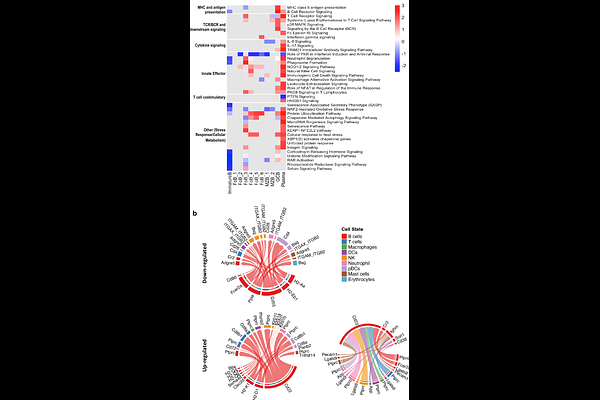Poor sleep impairs immune responses and influenza vaccine protection

Poor sleep impairs immune responses and influenza vaccine protection
Guan, M.; Gu, W.; Abdelnaby, K.; Balamalaliyage, P.; Tunterak, W.; Li, M.; Wen, Y.; Driver, J.; Gozal, D.; Wan, X.-f.
AbstractDisrrupted sleep, a common occurrence among shift workers, older adults, and individuals with sleep disorders, is increasingly recognized as a potential factor interfering with vaccine efficacy. Using a mouse model, we show that two weeks of chronic sleep fragmentation (CSF) before and during influenza vaccination significantly impair humoral immunity and reduce protection against lethal viral challenge. CSF-exposed mice exhibited lower neutralizing antibody titers, diminished IgG subclass responses, and reduced survival after viral challenge, despite preserved antibody binding avidity. Single-cell RNA sequencing and immune receptor profiling revealed altered B cell maturation, abnormal germinal center activation, and plasma cell stress, characterized by activation of unfolded protein response and oxidative stress pathways. CSF also reprogrammed B-cell signaling and disrupted coordination with T-cells. Together, this study showed that CSF compromises vaccine-induced immune responses by affecting multistage of B-cell differentiation, underscoring the importance of considering sleep health in vaccination strategies for vulnerable populations.